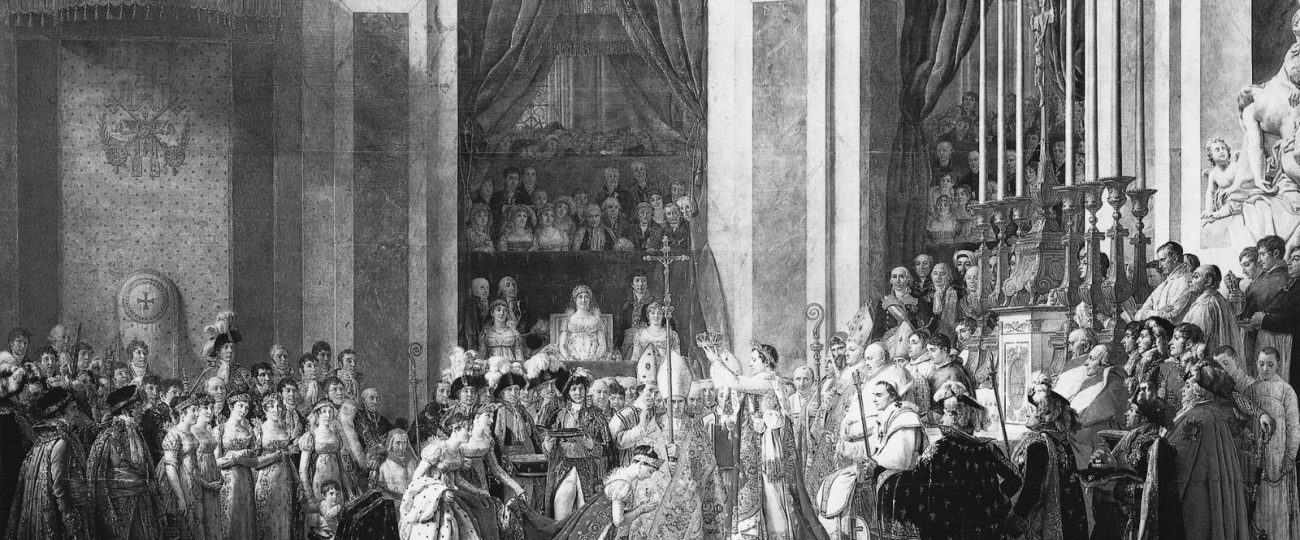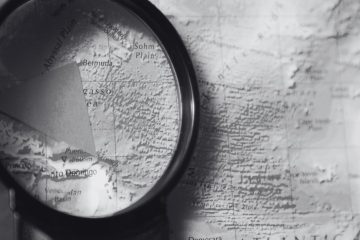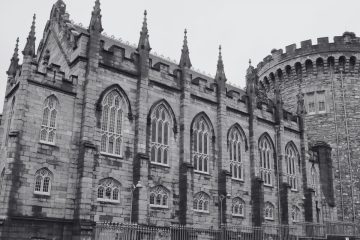What Happened On December 2nd?
On December 2, 1804, Napoleon Bonaparte crowned himself Emperor of France during an elaborate ceremony at Notre-Dame Cathedral in Paris. Political leaders, military commanders, and dignitaries gathered to witness the moment. Pope Pius VII, who had journeyed from Rome to officiate, prepared for his role in the proceedings. Napoleon, however, defied tradition by taking the crown from the Pope and placing it upon his own head. This act demonstrated his belief in self-made authority rather than power granted by divine right. Moments later, he crowned Josephine as Empress, confirming her position within the empire.
Napoleon meticulously planned the ceremony to assert his control and convey his vision of leadership. He commissioned Jacques-Louis David to paint the event, dictating specific elements to emphasize grandeur and power. Although Letizia Bonaparte, his mother, chose not to attend due to family disputes, Napoleon ordered the artist to depict her in the painting. By wearing a laurel wreath modeled after those of Roman emperors, he connected himself to historical greatness while signaling his ambition to shape Europe’s future.
Napoleon Bonaparte was born on August 15, 1769, in Ajaccio, Corsica, shortly after France acquired the island from Genoa. His family, though of noble descent, struggled financially. Carlo Bonaparte, his father, secured scholarships that allowed Napoleon to attend prestigious military schools in France. At the Royal Military School in Paris, Napoleon excelled in mathematics and artillery, skills that later defined his battlefield strategies. Despite enduring ridicule for his accent and modest stature, he developed a keen intellect and a determination that propelled him to prominence.
The French Revolution provided Napoleon with opportunities for rapid advancement. In 1793, he devised a successful plan to reclaim Toulon from British forces, earning a promotion to brigadier general at age 24. During the Italian campaigns of the mid-1790s, he repeatedly outmaneuvered larger Austrian armies, securing French dominance in Northern Italy. These victories bolstered his reputation as a military genius. By 1799, he orchestrated a coup d’état that overthrew the Directory, installing himself as First Consul and consolidating power.
As leader of France, Napoleon enacted sweeping reforms that transformed the nation. He introduced the Napoleonic Code, which standardized laws and emphasized equality for men while limiting women’s rights. He reorganized the government, streamlined taxation, and created the Banque de France to stabilize the economy. Through the Concordat of 1801, he reconciled with the Catholic Church, restoring its influence while maintaining state control over religious matters.
Napoleon’s military campaigns redefined European warfare. At the Battle of Austerlitz in 1805, he defeated a larger Austro-Russian force through precise maneuvers and deception, solidifying his reputation as a brilliant strategist. His Grande Armée operated with unmatched efficiency, utilizing independent corps that coordinated seamlessly across battlefields. However, his ambitions led to critical failures. In 1812, his invasion of Russia resulted in catastrophic losses, as brutal winters, logistical breakdowns, and Russian scorched-earth tactics decimated his forces. Only a fraction of his army returned, leaving his empire vulnerable.
After abdicating in 1814, Napoleon was exiled to Elba, a small Mediterranean island. Less than a year later, he escaped, rallied his supporters, and reclaimed power during the Hundred Days. His return culminated in the Battle of Waterloo in 1815, where British and Prussian forces decisively defeated him. Following his second abdication, Napoleon was exiled to Saint Helena, a remote island in the South Atlantic. He remained there under British supervision until his death in 1821, likely from stomach cancer, though some theories suggested poisoning.
Beyond his military and political achievements, Napoleon displayed a deep interest in science, culture, and infrastructure. During his Egyptian expedition, he brought scholars and scientists to study ancient artifacts, leading to the discovery of the Rosetta Stone. Although the campaign faltered militarily, its cultural impact deepened Europe’s understanding of ancient Egypt. In France, Napoleon spearheaded public works projects, improving sanitation in Paris, creating national hospitals, and commissioning roads, bridges, and canals to enhance commerce and transportation.
Napoleon’s personal life intertwined with his public ambitions. His marriage to Josephine de Beauharnais began with passion but ended in divorce in 1810 when she failed to produce an heir. He then married Marie-Louise of Austria, who bore him a son, Napoleon II. Despite their separation, Napoleon retained affection for Josephine, preserving her residence at Malmaison and often reminiscing about her.
Napoleon’s habits revealed his relentless work ethic. He dictated orders late into the night, ensuring every detail of his campaigns aligned with his vision. His iconic bicorne hat, worn sideways for distinction, became a hallmark of his image. He proposed a decimal-based timekeeping system to align with the metric system, though the idea never gained traction. During his exile on Saint Helena, he occupied himself with writing and gardening, striving to influence how history would perceive him.
Napoleon founded the Lycée system, standardizing secondary education across France, and promoted the adoption of the metric system. His interest in engineering led to the establishment of schools that trained professionals to design infrastructure critical to France’s economy. He also mandated smallpox vaccinations for soldiers, an early example of public health measures during his reign.
Critics condemned Napoleon for his authoritarian approach. He censored the press, suppressed opposition, and prioritized personal power over democratic ideals. His military campaigns devastated much of Europe, leaving lasting scars. Yet, his ability to inspire loyalty, implement enduring reforms, and dominate European politics for over a decade ensured his position as one of history’s most influential figures.





